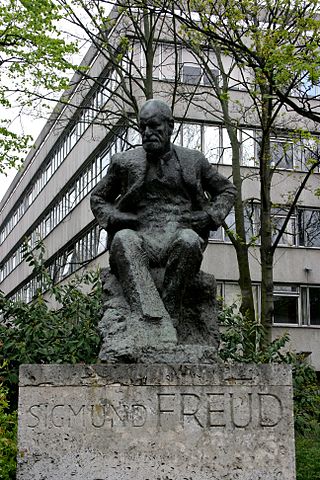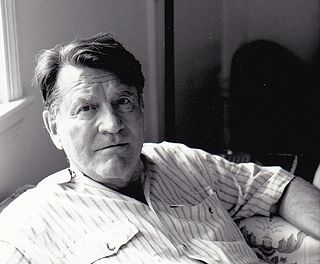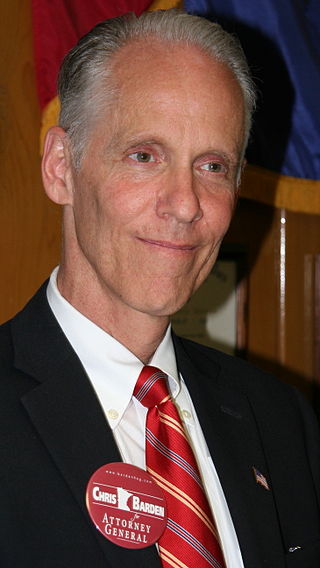History
Dr. Nathan W. Ackerman founded the Ackerman Institute for the Family in 1960. Although trained as a classical analyst, Dr. Ackerman broke with this approach after World War II when he began to experiment with seeing patients and their families in a group. [2] He published, taught and showed movies demonstrating this new method, pioneering not only a new type of therapy, but also the tradition of the audiovisual documentation of clinical work that became one of the cornerstones of family therapy training. In 1960, a group of families treated by Dr. Ackerman established a non-profit institute to allow him to expand his training activities. [3]
In 1967, Donald Bloch became the Ackerman Institute's second director. Under his leadership, the Institute inaugurated an expanded clinical training program, developed a large family therapy clinic housed at the Institute and initiated a series of projects aimed at creating new approaches to particularly difficult clinical problems. [4]
In 1970, Kitty LaPerriere became the Institute’s first Director of Training. LaPerriere established the tradition of training therapists together in groups, allowing students to learn from each other. [5] Students enrolled in the clinical externship record their counseling sessions with families, then use the documentation to discuss their techniques with faculty members and classmates.
Notable faculty
Therapists who have taught, or currently teach at the Institute include: Nathan Ackerman, Lois Braverman, Donald Bloch, Martha Edwards, Virginia Goldner, Judy Grossman, Lynn Hoffman, Evan Imber-Black, Laurie Kaplan, Elana Katz, Kitty LaPerriere, Catherine Lewis, Jean Malpas, Peggy Papp, Peggy Penn, Constance Scharf, Michele Scheinkman, Marcia Sheinberg, Susan Shimmerlik, Olga Silverstein, Sippio Small, Peter Steinglass, Marcia Stern, Judy Stern-Peck, Fiona True, Gillian Walker, thandiwe Dee Watt-Jones, and Hinda Winawer.

Cognitive behavioral therapy (CBT) is a psycho-social intervention that aims to reduce symptoms of various mental health conditions, primarily depression and anxiety disorders. CBT focuses on challenging and changing cognitive distortions and their associated behaviors to improve emotional regulation and develop personal coping strategies that target solving current problems. Though it was originally designed to treat depression, its uses have been expanded to include the treatment of many mental health conditions, including anxiety, substance use disorders, marital problems, and eating disorders. CBT includes a number of cognitive or behavioral psychotherapies that treat defined psychopathologies using evidence-based techniques and strategies.

Psychotherapy is the use of psychological methods, particularly when based on regular personal interaction, to help a person change behavior, increase happiness, and overcome problems. Psychotherapy aims to improve an individual's well-being and mental health, to resolve or mitigate troublesome behaviors, beliefs, compulsions, thoughts, or emotions, and to improve relationships and social skills. Numerous types of psychotherapy have been designed either for individual adults, families, or children and adolescents. Certain types of psychotherapy are considered evidence-based for treating some diagnosed mental disorders; other types have been criticized as pseudoscience.
Occupational therapists (OTs) are health care professionals specializing in occupational therapy and occupational science. OTs and occupational therapy assistants (OTAs) use scientific bases and a holistic perspective to promote a person's ability to fulfill their daily routines and roles. OTs have immense training in the physical, psychological, and social aspects of human functioning deriving from an education grounded in anatomical and physiological concepts, and psychological perspectives. They enable individuals across the lifespan by optimizing their abilities to perform activities that are meaningful to them ("occupations"). Human occupations include activities of daily living, work/vocation, play, education, leisure, rest and sleep, and social participation.

Clinical psychology is an integration of social science, theory, and clinical knowledge for the purpose of understanding, preventing, and relieving psychologically based distress or dysfunction and to promote subjective well-being and personal development. Central to its practice are psychological assessment, clinical formulation, and psychotherapy, although clinical psychologists also engage in research, teaching, consultation, forensic testimony, and program development and administration. In many countries, clinical psychology is a regulated mental health profession.
Sex therapy is a strategy for the improvement of sexual function and treatment of sexual dysfunction. This includes sexual dysfunctions such as premature ejaculation or delayed ejaculation, erectile dysfunction, lack of sexual interest or arousal, and painful sex, as well as dealing with problems imposed by atypical sexual interests (paraphilias), gender dysphoria and being transgender, highly overactive libido or hypersexuality, a lack of sexual confidence, recovering from sexual abuse such as rape or sexual assault, and sexual issues related to aging, illness, or disability.

The Tavistock and Portman NHS Foundation Trust is a specialist mental health trust based in north London. The Trust specialises in talking therapies. The education and training department caters for 2,000 students a year from the United Kingdom and abroad. The Trust is based at the Tavistock Centre in Swiss Cottage. The founding organisation was the Tavistock institute of medical psychology founded in 1920 by Dr. Hugh Crichton-Miller.
Salvador Minuchin was a family therapist born and raised in San Salvador, Entre Ríos, Argentina. He developed structural family therapy, which addresses problems within a family by charting the relationships between family members, or between subsets of family. These charts represent power dynamics as well as the boundaries between different subsystems. The therapist tries to disrupt dysfunctional relationships within the family, and cause them to settle back into a healthier pattern.

Jay Douglas Haley was one of the founding figures of brief and family therapy in general and of the strategic model of psychotherapy, and he was one of the more accomplished teachers, clinical supervisors, and authors in these disciplines.

Julie Carmen is an American actress, dancer and a licensed psychotherapist. She came to prominence onscreen in the 1980s, for her role in John Cassavetes' film, Gloria (1980), opposite Gena Rowlands.
The Palo Alto Mental Research Institute (MRI) is one of the founding institutions of brief and family therapy. Founded by Don D. Jackson and colleagues in 1958, MRI has been one of the leading sources of ideas in the area of interactional/systemic studies, psychotherapy, and family therapy.

R. Christopher "Chris" Barden Ph.D., J.D., L.P. is a scientist, clinical psychologist and attorney who lives in Plymouth, Minnesota. He served as the director of the National Association for Consumer Protection In Mental Health Practices (NACPMHP) from 1995-2005. In 2005, the NACPMHP merged into the Commission for Scientific Medicine and Mental Health (CSMMH), a national health care consumer protection agency whose members include physicians, scientists and researchers.
Nathan W. Ackerman was an American psychiatrist, psychoanalyst, and one of the most important pioneers of the field of family therapy. He also was an expert in marriage counselling.

The Association for Behavioral and Cognitive Therapies (ABCT) was founded in 1966. Its headquarters are in New York City and its membership includes researchers, psychologists, psychiatrists, physicians, social workers, marriage and family therapists, nurses, and other mental-health practitioners and students. These members support, use, and/or disseminate behavioral and cognitive approaches. Notable past presidents of the association include Joseph Wolpe, Steven C. Hayes, Michelle Craske, Jonathan Abramowitz, Marsha M. Linehan, Linda C. Sobell, Kelly D. Brownell, Gerald Davison, and Alan E. Kazdin.
Multisystemic therapy (MST) is an intense, family-focused and community-based treatment program for juveniles with serious criminal offenses who are possibly abusing substances. It is also a therapy strategy to teach their families how to foster their success in recovery.
Family therapy is a branch of psychology and clinical social work that works with families and couples in intimate relationships to nurture change and development. It tends to view change in terms of the systems of interaction between family members.
The Houston Galveston Institute is a non-profit organization that offers a method of collaborative counseling and postmodern therapy to individuals, families and communities of all socioeconomic backgrounds. The institute is strongly associated with collaborative language systems, a type of postmodern therapy that works with clients within a cooperative partnership that holds their expertise in high regard, and that encourages them to access their own natural resources to develop solutions to their problems. The Houston Galveston Institute is a sponsor of the International Journal of Collaborative Practices.

Family Process is a quarterly peer-reviewed academic journal covering research on family system issues, including policy and applied practice. It is published by Wiley-Blackwell on behalf of the Family Process Institute. Since 2007, the journal publishes its abstracts in Chinese and Spanish in addition to English. The journal publishes original articles, including theory and practice, philosophical underpinnings, qualitative and quantitative clinical research, and training in couple and family therapy, family interaction, and family relationships with networks and larger systems.
Certified Sex Therapists (CST) have graduate degrees in a clinical mental health field and have obtained advanced training in sex therapy from a credentialed training body, resulting in certification. One of the largest such bodies is the American Association of Sexuality Educators, Counselors and Therapists (AASECT).
Arlene Istar Lev is a North American clinical social worker, family therapist, and educator. She is an independent scholar, who has lectured internationally on topics related to sexual orientation and gender identity, sexuality, and LGBTQ families.
Psychodynamic Therapy with Infants and Parents aims to relieve emotional disturbances within the parent(s), the baby, and/or their interaction, for example, postnatal depression and anxiety, infant distress with breastfeeding and sleep, and attachment disorders. It rests on attachment theory and psychoanalysis. Sigmund Freud suggested that a modification of his method could be applied to children, and child analysis was introduced in the 1920s by [Anna Freud].., [Melanie Klein], and Hermine Hug von Hellmuth. Klein speculated on infantile experiences to understand her patients' disorders but she did not practice PTIP. Donald Winnicott, a pediatrician and analyst, focused on the mother-baby interplay in his theorizing and his brief parent-child consultations, but he did not work with PTIP.






